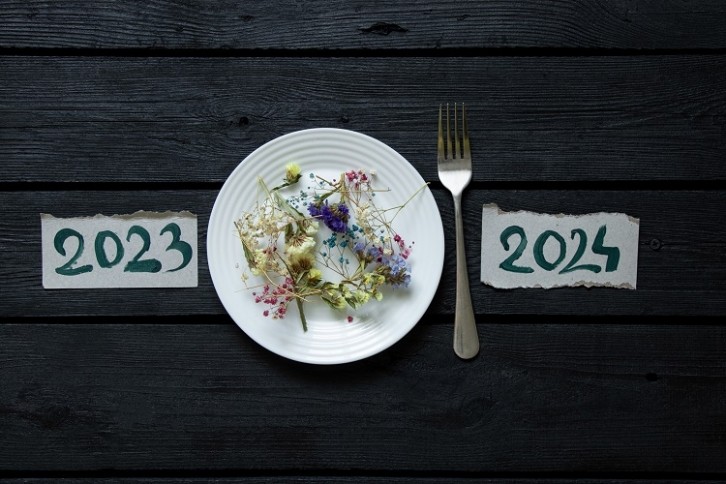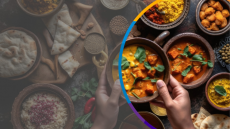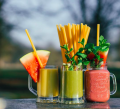Is the ‘healthy indulgence’ production trend out, the immunity diet one in for 2024?

Consumers are increasingly aware of foods’ role in supporting their immune system and overall health and wellbeing. With mental health awareness on the rise, food brands add nutritionally supportive ingredients, promoted as helping provide clarity, calm and sleep support.
“Immunity diets will be the focus in 2024, with less alcohol consumption in the under 35s and a rise in functional foods,” Dr Morgaine Gaye, a Food Futurologist, who looks at food and eating from a social, cultural, economic, trend, branding and geo-political perspective, told FoodNavigator in her latest annual insights.
The immunity diet is set to be a significant movement in 2024 in response to global conflicts, COVID-19 and the cost of living crisis affecting our emotional and physical wellbeing, Dr Gaye said. Rather than supplements or tablets, the immunity diet features real food from natural sources rich in vitamin D and zinc, fermented foods, sweet potatoes, berries and no sugar, which Dr Gaye shared, depletes vitamin C and undermines immunity.
“Healthy indulgence seems contradictory, and we will see plenty of decadence alongside the nutritionally clean options, but any combination of the two speaks of a time gone by,” added Dr Gaye.
Leading 2024 trends: New ways to do more with fruit and veg
Following the attention Netflix’s Blue Zone series has attracted, diet foods synonymous with Blue Zone regions, which comprises five communities where people live longer and healthier lives than the norm, is a leading trend for 2024.
Foods profiled in this series, including the vegetable of the year, the purple sweet potato, are expected to appeal to foodies and manufacturers in 2024. The purple sweet potato also aligns with other 2024 food trends, including the potato diet and blue food, which involves colouring items with butterfly pea protein and blue Klamath algae.
The potato diet, or cleanse, is anticipated to make it high in the trends list in 2024. It is thought to ‘flatten the palate’, stop cravings, calm the digestive system and provide the added benefit of weight loss, Dr Gaye stated.
Mono meals is also a trend set to explode onto the food sphere in 2024. Defined by its one-ingredient minimalism, that’s where the limitations end as it consists of eating as much of that one fruit or vegetable item, like bananas or carrots, as consumers choose.
Simplicity at mealtime but complexity during the week is thought to allow the gut to rest and absorb nutrients more effectively, Dr Gaye said, speaking about the trend. As a result, a daily diet consisting of three different foods may amount to 21 health-giving plant-based choices over a week.
Putting the 'plant' back in plant-based is making a big move in 2024. While consumers have been gradually moving away from packaged “non-meat meats” since 2020, Dr Gaye added we will still see a rise in plant-based options with more natural vegetable or bean ingredients in their unadulterated form.
Getting closer to nature through healthy food choices will be on the menu next year. While vegan and plant-based diets are nothing new, expect a big jump in consumers opting for these diets that focus much more on making homemade vegetable-based food options cooked from scratch in 2024.
Planning for 2024 consumer demands
With 2024 around the corner, the worry may be that bigger brands will struggle to make shifts now to respond to these demands. “Larger brands take much longer to respond to consumer demands, and it would be impossible for them to begin to deal with these requirements in a timely manner for 2024,” Gaye confirmed.
Yet, as these trends are expected to stay the course for several years, implementing new product development pipelines now and capturing food consumers’ needs is possible. Startups and smaller brands with more agile and adaptable operations can seek to appeal to these consumers as soon as their processes and systems allow.
“The long view is that most of these themes are set to last for a few more years so that brands can identify needs and create products which will address these areas and also speak to long arching trends such as community, kindness and home as the centre of eating and celebration,” added Dr Gaye.
Managing ‘contradictory’ trends
“Trends always run in parallel, so they provide two often opposing concepts,” said Dr Gaye. In 2024, for example, we will see much more focus on homemade, imperfect, simplicity, nature-based themes in food, fashion and interiors. Consumers will also see the rise of 80s opulence; more is more, everything at once, and indulgence and sparkle.
Overall, individual food brands typically need to align with their brand values and create products that best represent their ethos and support their target market. “There is no quick fix for identifying trends and consumer needs and aligning those with the myriad of factors which drive a business,” said Dr Gaye.
Determining food trends
Multiple drivers exist when considering food trends, with geopolitics, economics, cultural preoccupations, fashion trends and social concerns among these.
“Right now, some of the considerations are the wars in both Ukraine and Gaza and the political and food insecurity affected by that,” said Dr Gaye. “Plus dividing loyalties creating unrest and friction at many levels, local politics in the UK and how the nation is feeling destabilised, insecure and financially vulnerable,” Dr Gaye added.
Leading consumer concerns relate to the planet, nature and our role in the ecosystem. The connection between food and fashion is an interesting one. “Fashion seems to be reflecting this in the 70’s patterns, designs and colourways referencing a bleak time of general strikes, power cuts and political turmoil,” Dr Gaye stated.
Nostalgia typically presents two different times in history, one which reflects the current climate and another which is idealised through rose-tinted glasses, Dr Gaye added: “Right now, that seems to be the 90s—a time of much more positivity."














